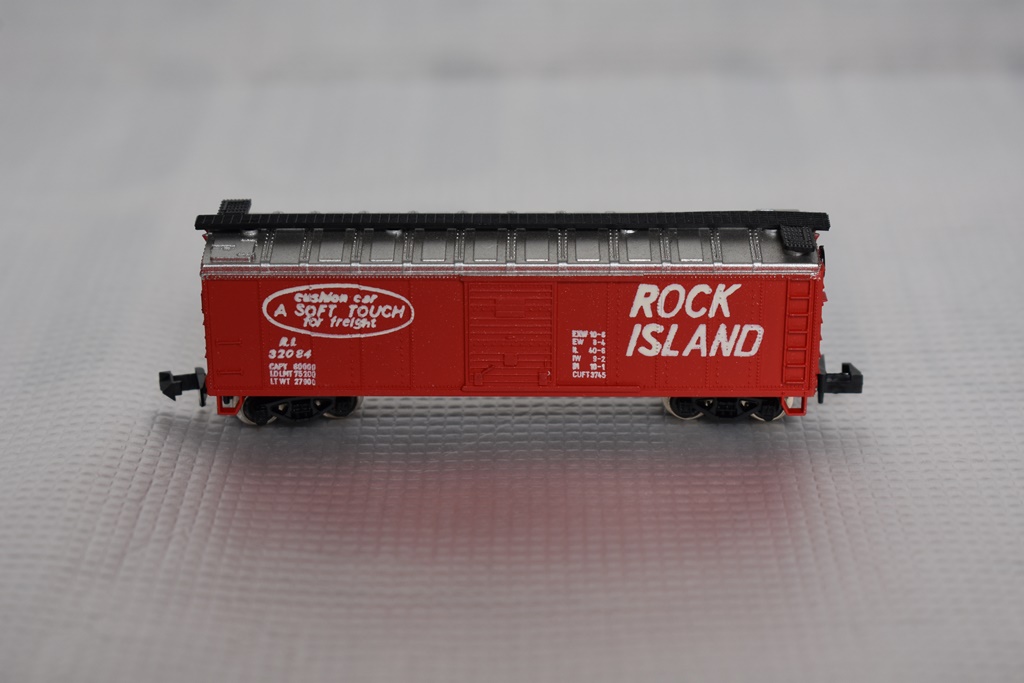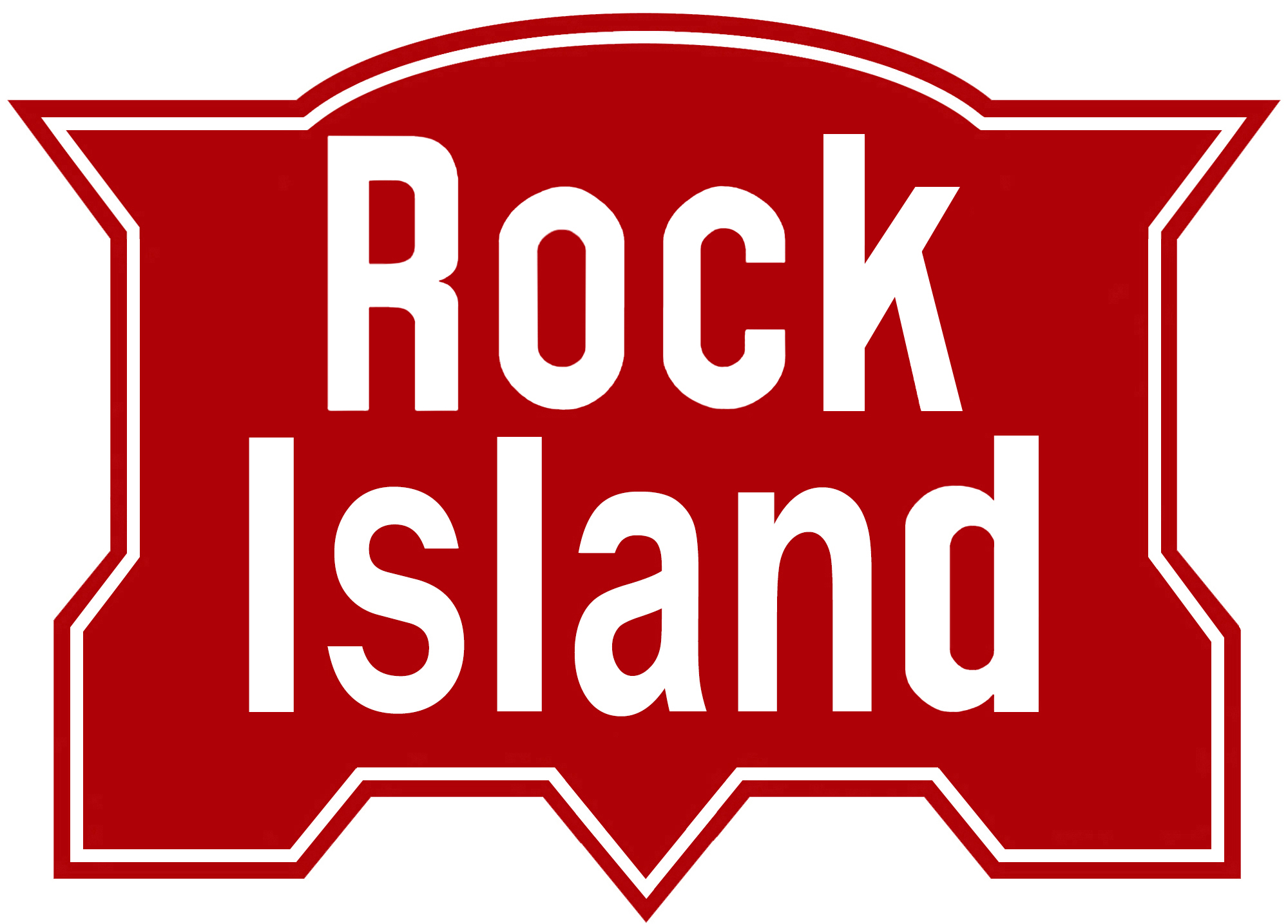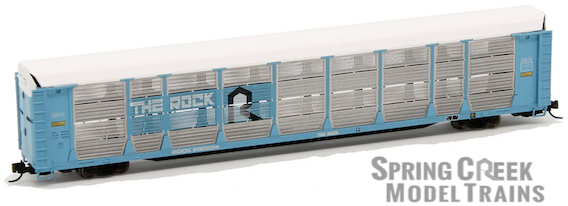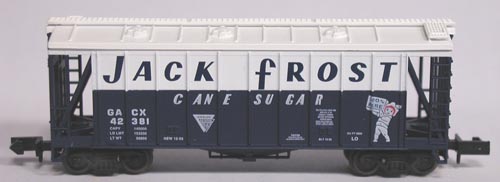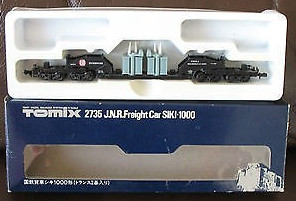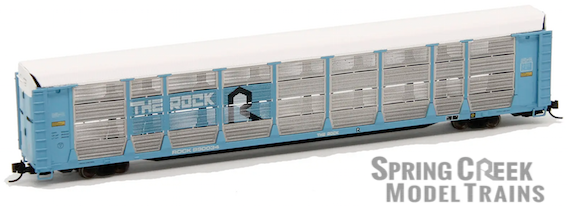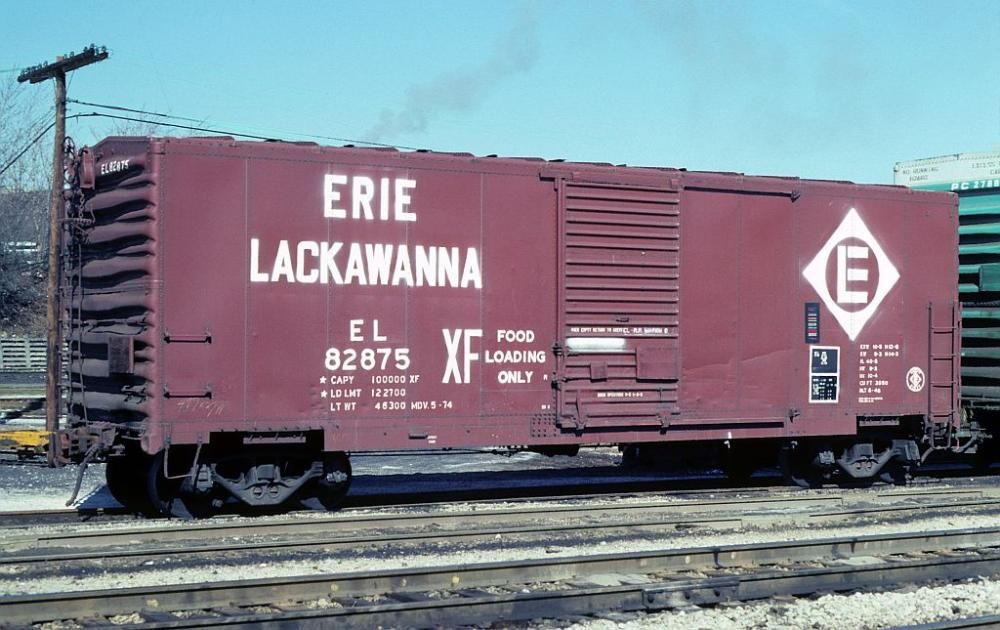Model Information: Mehano first produced this car for MRC. It is a direct knock-off of the Rivarossi-made steel boxcar, inspired from the PRR X-29 prototype. It purportedly designed by Atlas to replace the Rivarossi model (labor costs in Italy?), but Atlas never actually ordered any to be made once the design was completed by Mehano. I am not confident this is true as the oldest versions of this car that I have seen are stamped 'MRC Yugoslavia' which implies the mold was designed for MRC and not Atlas. It was later imported by Life-Like, Model Power and AHM. It carries nickel-silver plated wheels and Rapido couplers. It is a typical 1st gen rolling stock model with low-quality pad printing (at least for the older models) and a simple mold.
Model Power later re-ran their Mehano-made models in China, using the same roadnames and numbers and the same stock number. The main differences between the Mehano and the Chinese molds can be observed on the door and the sill of the underframe; the Mehano is also slightly lower in height. The best way to distinguish them remains however the marking on the under-frame (Yugoslavia or Hong-Kong)
Model Power later re-ran their Mehano-made models in China, using the same roadnames and numbers and the same stock number. The main differences between the Mehano and the Chinese molds can be observed on the door and the sill of the underframe; the Mehano is also slightly lower in height. The best way to distinguish them remains however the marking on the under-frame (Yugoslavia or Hong-Kong)
Prototype History: Steel boxcars became a common site in the post-WWII period (also known as the transition era). Steel construction resulted in a lighter, lower-maintenance car that was less expensive to acquire and operate. The economies of scale that happened during the war along with a cessation of orders from the military resulted in a plentiful, inexpensive source of metal and aluminum for the railcar manufacturers which in turn led a complete replacement of the aging wood-sheathed fleets with new steel cars.
Road Name History: The Chicago, Rock Island and Pacific Railroad (CRI&P RR) (reporting marks RI, ROCK) was a Class I railroad in the United States. It was better known as the Rock Island Line, or, in its final years, The Rock. At the end of 1970 it operated 7183 miles of road on 10669 miles of track; that year it reported 20557 million ton-miles of revenue freight and 118 million passenger-miles. (Those totals may or may not include the former Burlington-Rock Island Railroad.)
Its predecessor, the Rock Island and La Salle Railroad Company, was incorporated in Illinois on February 27, 1847, and an amended charter was approved on February 7, 1851, as the Chicago and Rock Island Railroad. Construction began October 1, 1851, in Chicago, and the first train was operated on October 10, 1852, between Chicago and Joliet. Construction continued on through La Salle, and Rock Island was reached on February 22, 1854, becoming the first railroad to connect Chicago with the Mississippi River.
In 1980 Rock Island was liquidated. The railroad's locomotives, rail cars, equipment, tracks, and real estate were sold to other railroads or to scrappers. William Gibbons (the trustee) was able to raise more than $500 million in the liquidation, paying off all the railroad's creditors, bondholders and all other debts in full at face value with interest. Henry Crown was ultimately proven correct, as both he and other bondholders who had purchased Rock Island debt for cents on the dollar during the low ebb in prices did especially well.
Read more on Wikipedia and Rock Island Technical Society.
Its predecessor, the Rock Island and La Salle Railroad Company, was incorporated in Illinois on February 27, 1847, and an amended charter was approved on February 7, 1851, as the Chicago and Rock Island Railroad. Construction began October 1, 1851, in Chicago, and the first train was operated on October 10, 1852, between Chicago and Joliet. Construction continued on through La Salle, and Rock Island was reached on February 22, 1854, becoming the first railroad to connect Chicago with the Mississippi River.
In 1980 Rock Island was liquidated. The railroad's locomotives, rail cars, equipment, tracks, and real estate were sold to other railroads or to scrappers. William Gibbons (the trustee) was able to raise more than $500 million in the liquidation, paying off all the railroad's creditors, bondholders and all other debts in full at face value with interest. Henry Crown was ultimately proven correct, as both he and other bondholders who had purchased Rock Island debt for cents on the dollar during the low ebb in prices did especially well.
Read more on Wikipedia and Rock Island Technical Society.
Brand/Importer Information:  Life-Like Products LLC (now Life-Like Toy and Hobby division of Wm. K. Walthers) was a manufacturer of model railroad products and was based in Baltimore, Maryland.
Life-Like Products LLC (now Life-Like Toy and Hobby division of Wm. K. Walthers) was a manufacturer of model railroad products and was based in Baltimore, Maryland.
It was founded in the 1950s by a company that pioneered extruded foam ice chests under the Lifoam trademark. Because ice chests are a summer seasonal item, the company needed a way to keep the factory operating year round. As model railroading was becoming popular in the post-war years, they saw this as an opportunity and so manufactured extruded foam tunnels for model trains. Over the years, Life-Like expanded into other scenery items, finally manufacturing rolling stock beginning in the late 1960s. At some point in the early 1970s, Life-Like purchased Varney Inc. and began to produce the former Varney line as its own.
The Canadian distributor for Life-Like products, Canadian Hobbycraft, saw a missing segment in market for Canadian model prototypes, and started producing a few Canadian models that were later, with a few modifications, offered in the US market with US roadnames.
In 2005, the company, now known as Lifoam Industries, LLC, decided to concentrate on their core products of extruded foam and sold their model railroad operations to Wm. K. Walthers.
In June 2018, Atlas and Walthers announced to have reached an agreement under which all Walthers N scale rolling stock tooling, including the former Life-Like tooling, will be purchased by Atlas.
Read more on Wikipedia and The Train Collectors Association.

It was founded in the 1950s by a company that pioneered extruded foam ice chests under the Lifoam trademark. Because ice chests are a summer seasonal item, the company needed a way to keep the factory operating year round. As model railroading was becoming popular in the post-war years, they saw this as an opportunity and so manufactured extruded foam tunnels for model trains. Over the years, Life-Like expanded into other scenery items, finally manufacturing rolling stock beginning in the late 1960s. At some point in the early 1970s, Life-Like purchased Varney Inc. and began to produce the former Varney line as its own.
The Canadian distributor for Life-Like products, Canadian Hobbycraft, saw a missing segment in market for Canadian model prototypes, and started producing a few Canadian models that were later, with a few modifications, offered in the US market with US roadnames.
In 2005, the company, now known as Lifoam Industries, LLC, decided to concentrate on their core products of extruded foam and sold their model railroad operations to Wm. K. Walthers.
In June 2018, Atlas and Walthers announced to have reached an agreement under which all Walthers N scale rolling stock tooling, including the former Life-Like tooling, will be purchased by Atlas.
Read more on Wikipedia and The Train Collectors Association.
Manufacturer Information: Mehano is a Slovenian toy manufacturer located in Izola, Slovenija. The company was founded as Mehanotehnika and was producing toys starting in June 1953. They first exhibited at the Nuerenberg Toy Fair in 1959. Mehano produced a number of different locomotives and rolling stock models for the North American market in the 1960s and 1970s. Companies such as Atlas and Life-Like imported a huge variety of their products. Generally they can easily be recognized as they are stamped "Yugosolavia" on the underframe. The company was formally renamed "Mehano" in 1990. Izola today is part of the country of Slovenia since the breakup of Yugoslavia.
Mehano filed for bankruptcy in 2008, but still continued to exist and operate. Since 2012, Mehano products are distributed by Lemke.
Mehano filed for bankruptcy in 2008, but still continued to exist and operate. Since 2012, Mehano products are distributed by Lemke.
Item created by: gdm on 2022-09-12 09:20:32. Last edited by gdm on 2022-11-01 11:05:39
If you see errors or missing data in this entry, please feel free to log in and edit it. Anyone with a Gmail account can log in instantly.
If you see errors or missing data in this entry, please feel free to log in and edit it. Anyone with a Gmail account can log in instantly.


